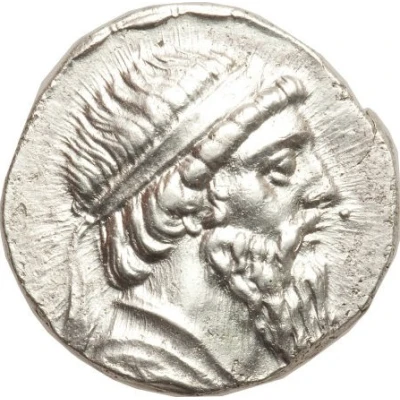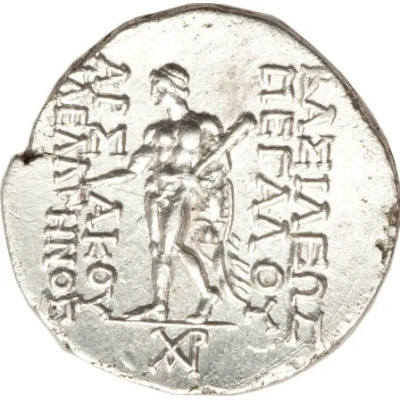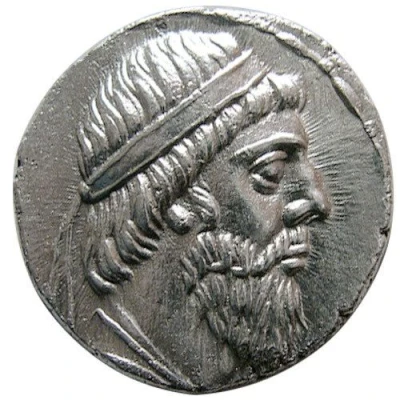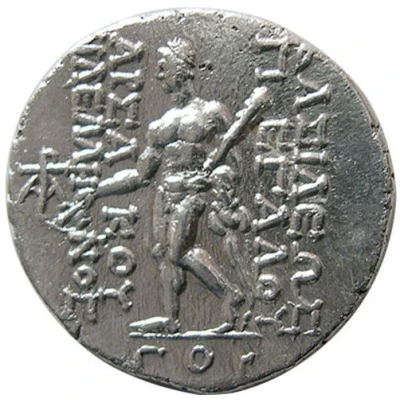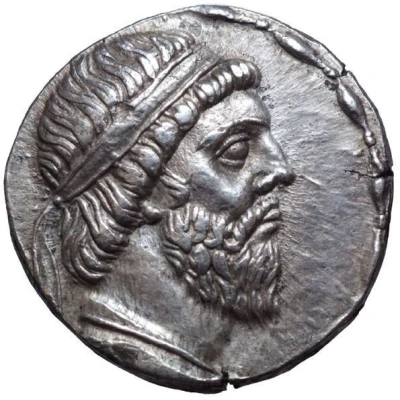
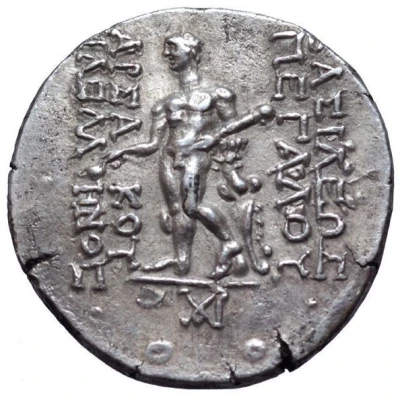

© Roma Numismatics Limited
Tetradrachm - Mithridates I 173 140 BC
173 (140 BC) year| Silver | 15.02 g | 26 mm |
| Issuer | Parthian Empire (Parthian Empire (247 BC - 224 AD)) |
|---|---|
| King | Mithridates I (171 BC - 135 BC) |
| Type | Standard circulation coin |
| Year | 173 (140 BC) |
| Calendar | Seleucid era |
| Value | Tetradrachm (4) |
| Currency | Drachm (247 BC-224 AD) |
| Composition | Silver |
| Weight | 15.02 g |
| Diameter | 26 mm |
| Shape | Round (irregular) |
| Technique | Hammered |
| Orientation | Variable alignment ↺ |
| Demonetized | Yes |
| Updated | 2024-10-10 |
| Numista | N#420670 |
|---|---|
| Rarity index | 100% |
Reverse
Diademed and beardless young Herakles standing left, holding skyphos in extended right hand and cradling club in lion skin-draped left arm; monogram in exergue.
Script: Greek
Lettering:
BAΣIΛEΩΣ MEΓAΛOY
APΣAKOY ΦIΛEΛΛHNOΣ
Comment
BMC 50.
Interesting fact
One interesting fact about the Tetradrachm - Mithridates I 173 (140 BC) coin from the Parthian Empire is that it features a unique blend of Greek and Persian influences in its design. The coin's obverse side features a portrait of Mithridates I, the ruler of the Parthian Empire, with a Greek-style crown and a beard, while the reverse side depicts a seated figure of the Persian goddess Anahita, with a Greek-style throne and a crescent moon above her head. This fusion of cultural elements reflects the Parthian Empire's position as a bridge between the Greek and Persian worlds, and demonstrates the empire's willingness to adopt and adapt different cultural traditions.
Price
| Date | Mintage | VG | F | VF | XF | AU | UNC |
|---|---|---|---|---|---|---|---|
| 173 (140 BC) | - | - | - | - | - | - |
Values in the table are based on evaluations by sales realized on Internet platforms. They serve as an indication only for Tetradrachm - Mithridates I 173 (140 BC) coin.
